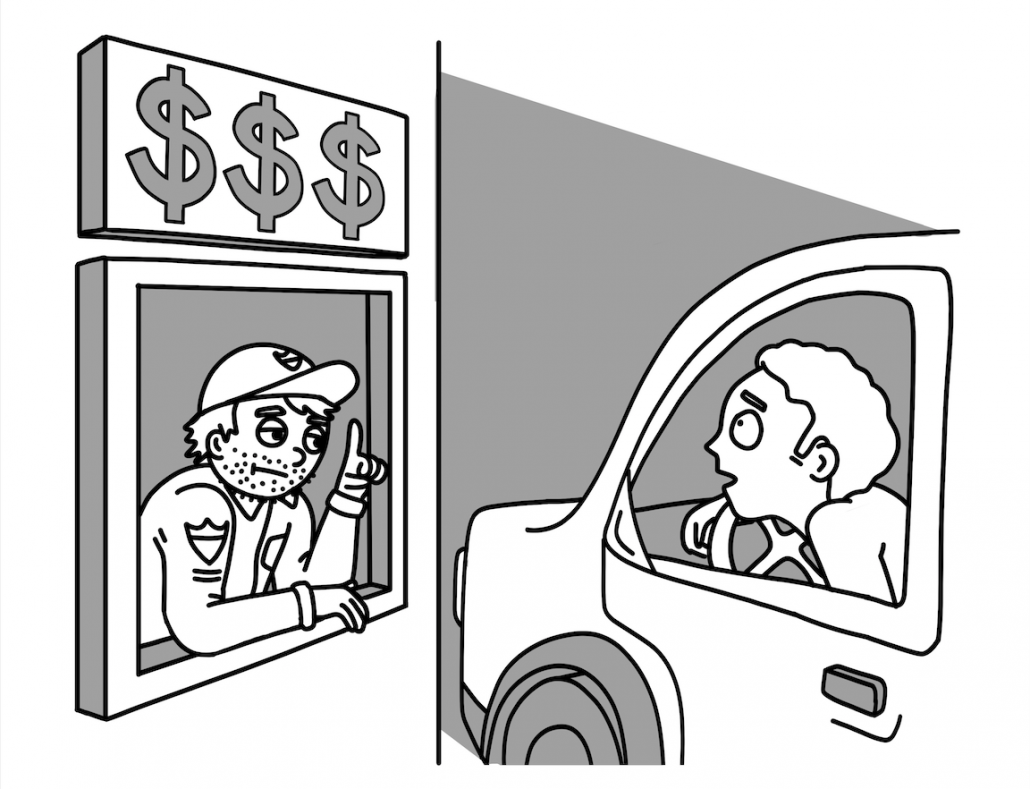Where the Sidewalk Starts: LA highway tolls will take a toll on commuters

Driving in Los Angeles is a common grumble — it’s the start of many conversations and now a new chip on the table for city officials. The Los Angeles County Metropolitan Transportation Authority has proposed imposing fees on drivers to curb congestion and decrease travel times. Despite the benefits that congestion pricing has for the environment and for drivers’ experiences in L.A., instating tolls is merely a temporary bandage — one that would harm those who cannot afford to pay without providing the resources necessary to counterbalance its ramifications.
In a sprawling city with rising housing costs that push people further from its core, and transportation infrastructure that does not support a growing population, driving is often the only realistic choice for commuters. Metro unreliability is just as common a hassle as traffic and for people who cannot afford to live where they work, the Metro’s limited reach is also a problem. The Los Angeles Times reported that though billions of dollars went toward improving public transit in 2016, Metro ridership continues to decrease every year.
But commuters cannot avoid both public transit and tolls. To do so would require more people to carpool or an expansion of highways to support more drivers. But neither of these alternatives are feasible solutions. Single riders on the 10 and 110 freeways are already paying tolls to drive in carpool lanes. It’s a system that benefits the wealthy and maintains the status quo for commuters who carpool.
Carpooling has lost popularity because of ride-hailing apps, which have created more drivers in the effort to provide accessible travel. People who would not otherwise be driving are for the opportunity to make extra money. Despite the counterintuitiveness of this modern carpool system, people prefer it. I’ve turned to ride-hailing services like Lyft and Uber and car rental services like Maven over Metro for the convenience of traveling farther with a guaranteed arrival time — or the promise of compensation if that isn’t fulfilled.
And there’s no room for L.A. to build more highways or scale back existing ones. City councilman Mike Bonin felt the wrath of Angelenos when they attempted to recall him after his traffic-causing idea: The 405 Freeway alternative route through Playa Del Rey was narrowed and several lanes became bike lanes. Though people initially supported the idea, having any fewer or more highways is impossible. Hasan Ikhrata, a former executive director of the Southern California Association of Governments told the Times, “We’re not adding any more freeways [in the L.A. area], period.”
The money from a driving tax would fund transportation in the long run, but it would also offer no immediate solution to our traffic problems. It’s a forward-looking plan that overlooks the present — Metro will conduct research on congestion pricing next month and looks to implement improvements over the next two years. But transit solutions to support commuters who struggle to pay toll fees won’t be around for another 10 years, as the city looks to improve its infrastructure for the 2028 Summer Olympics. But even with 28 new transportation projects planned, Metro lacks $26.2 billion in funding to complete all of them.
Due to the uncertainty of the city’s transportation systems, it’s easy for politicians to make promises that don’t pan out in the long-term. With the turmoil in education casting a dark shadow on Mayor Eric Garcetti’s possible 2020 presidential campaign, it is likely that transportation will become a major issue for his successor, especially once constituents begin complaining about past plans’ shortcomings.
There’s no easy way out of it. Transportation will always be a citywide struggle, and its effects on the community and the environment are hard to slow and impossible to reverse. Let’s just hope for the best that the upcoming tolls and freeway taxes will motivate increased carpooling, use of public transit and consciousness about the environment. That people who can’t afford a daily fee still find a timely way to commute. That lawmakers put the people they serve first and are resourceful with the infrastructure and assets L.A. already has. That innovation and better planning will create a more efficient, cleaner city that we call home.
Breanna de Vera is a sophomore writing about urban planning. She is also the opinion editor of the Daily Trojan. Her column, “Where the Sidewalk Starts” runs Mondays.

